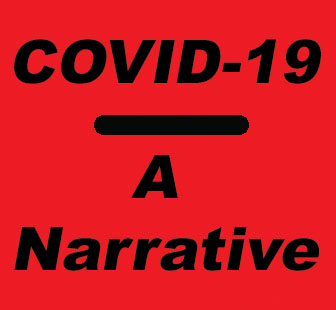By GEORGE SMITH, student reporter
Go outside? In this economy? I don’t think so.
I finally saved up enough money to make the biggest purchase of my life: a new, to me, car. I had my eyes set on buying a low mileage Jeep Wrangler from a local area dealer. However, I was able to talk myself down from the ledge.
Since the corona pandemic, the Dow Jones Industrial Average has plummeted to its lowest points since the 2008 housing market crash, also known as the Great Recession, along with the fastest drop of the New York Stock Exchange since Black Tuesday in 1929.
Personally, I lost $20 over the span of one week before withdrawing my funds and reinvesting into other stocks. But in large portfolios, such as a Roth Individual Retirement Account and other retirement plans like the 401(k), withdrawing is practically impossible until the account reaches maturity, much like a certificate of deposit at a bank.
This means everyone with individual retirement plans and everyone with jobs that plan for retirement by making investments in the stock market such as my uncle lost thousands, or in my uncle’s case, tens of thousands of invested dollars.
Add this on top of the fact that Alva is a rural community in Oklahoma where our greatest employer is agriculture, yet the livestock market is doing flips like the Olympians would be in Tokyo this summer if The Olympics hadn’t been postponed, and we have the recipe for a detrimental economic climate in our community.
Not only are retirement funds running low, so are the checkbooks of our community members, specifically farmers and ranchers. Small businesses around The Square that rely on in-store purchases are being affected, places of gathering, such as the Rialto Cinema theater and The Bull Smokehouse and Saloon have made accommodations, but aren’t getting their full return of revenue that they should. The community is suffering, and I want to take advantage of it.
I know, I know, I’m a terrible person, but it’s not what it seems exactly.
I have the ability to make a good down payment on a used low mileage vehicle, and the prices are about to drop. If I can wait a couple more months or even a year until after I graduate I can have a bigger down payment and get better financing on a better vehicle, likely, for less money than what it would cost right now.
And buying locally will still help out the community.
Truly the only cylinder not firing and the only counter argument for holding out to buy is that I don’t want the opportunity at hand to go to waste.
I found a Jeep that I thought only existed in my dreams or on paper. This thing is a true work of beauty. Six-speed manual transmission and just as many cylinders. White as the snow its tires are made to plow through and the sound system every small-town boy spends all of his summer money on to put behind the seats of his daddy’s hand-me-down.
This is where my emotions talk me into going through with the purchase. Thinking things through and weighing all of my options has me further than most thought I would make it in life, but the biggest influences I have for holding out to buy is talking to people with more experience about making such hefty purchases. Mentors and advisers are a young upstart’s greatest ally in pursuing certain endeavors and mending those relationships has been key to my financial benefit in life thus far.
Holding out on buying a Jeep until the economy is back on the rise and people get their jobs back will be the manufacturer’s incentive to produce high-quality, low-cost vehicles. And with more competition in the market, consequently, other vehicle’s prices also will be forced to drop, if they are intended to be sold off the lot to clear more space for newer, lower costing vehicles.
Which is where I hope to stake my claim and take the opportunity to buy the Jeep, after the price drops.
I don’t feel bad for taking advantage of a slumped economy to buy a vehicle. I do feel bad for those suffering because of the slumped economy. It seems that the number of people severely affected by the lapse of economic support will be higher than the number that will be severely affected by the virus.
The coronavirus pandemic is having a worse effect on the U.S. economy than it has on U.S. citizens. Some 30 million Americans have filed for unemployment since President Trump declared a State of Emergency on the week of March 14. As of April 29 in the U.S., just over 1 million cases have been reported and about 60,000 people have died because of it.
Through debatable research, it was estimated that 500,000 cancer deaths were caused by the Great Recession in 2008 because of a lack of proper healthcare and more than 10,000 suicides can be tied to the economic crises as well in the U.S. between 2008 and 2010.
Economic downturns, recessions and depressions are far worse for the citizens of America than a viral pandemic. We did our part to slow the spread of the virus, but now that it’s here, we might as well deal with it, go back to work and ramp our economy back up to the superiority it holds in the global marketplace.
Americans need jobs and I want to buy a jeep.

